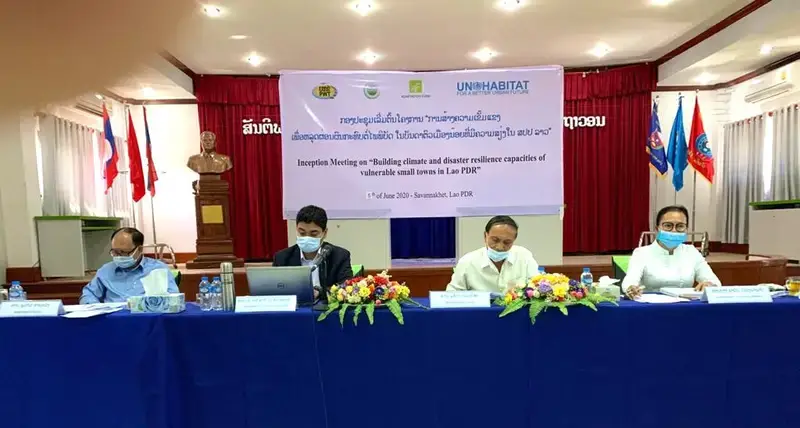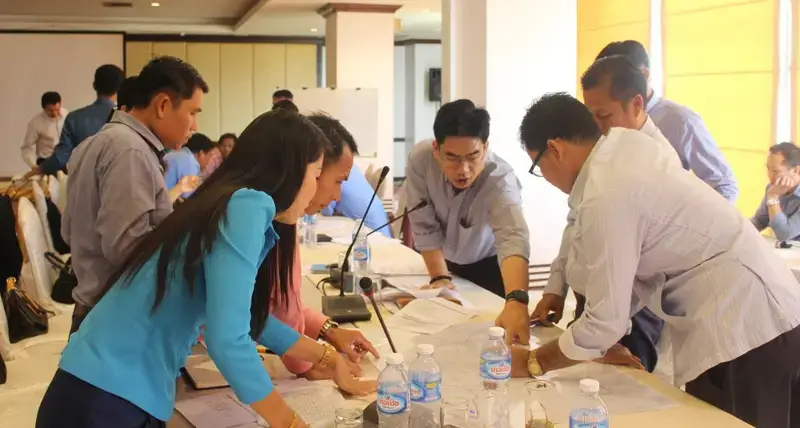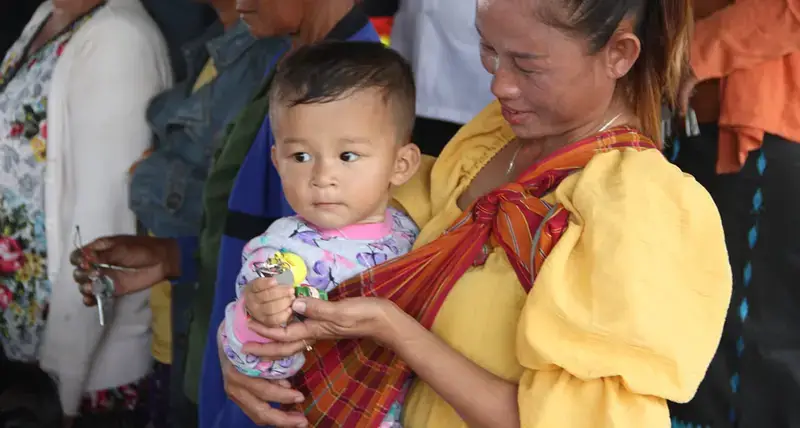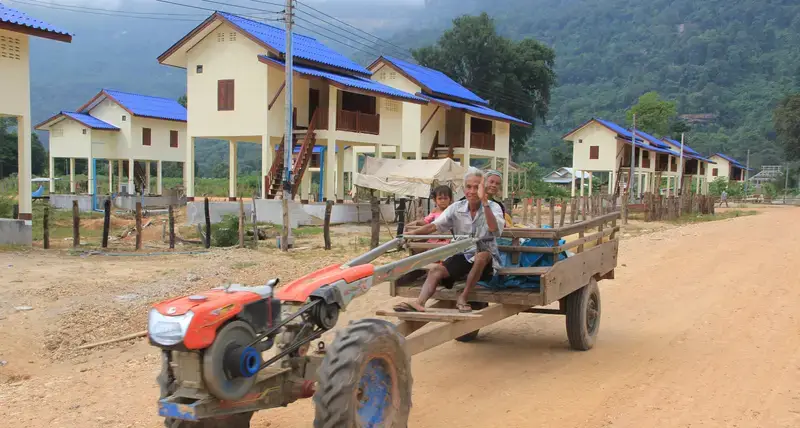UN-Habitat is supporting the 8th National Socio-Economic Development Plan (NSEDP) and the long-term development agenda of the Government of Lao PDR with an overall goal of graduating from its Least Developed Country (LDC) status by 2020, through supporting sustained inclusive economic growth, enhancing human development and reducing the effects of natural shocks. UN-Habitat in Lao PDR is especially focusing on strengthening areas in: Urban Legislation, Land and Governance; Urban Planning and Design (with a particular focus on climate change); and Urban Basic Services, allowing for a holistic approach in addressing the countries diverse challenges and needs.
Impact
Urban numbers
Challenges
Lao PDR is characterized by rapid and uncontrolled urbanization as a result of rural-urban migration. Although many parts of Lao PDR are still predominantly rural, with more than two thirds (67.1 per cent) of the people living in areas defined as rural. At the same time, Lao PDR is facing the highest urbanization rate in Asia, at a rate of 4.9 per cent, which is more than twice the global average of 2 per cent. This poses a huge pressure on urban and emerging urban settlements.
Additionally, some houses in urban areas are still without electricity and about 10 per cent of urban areas of the country have not yet been covered by an improved source of drinking water. Also, about 40% of everyday waste produced, approximately 6 kg/person, are disposed at the road side, back yard, water way or by open burning. The untreated water has become a cause of concern in most cities.
Country Beneficiaries
“We are very proud and happy to have received this classroom. We will definitely be utilising this space in our lessons.”
Ms. Inthavane Orachith, Teacher at a school where a new water classroom was added, as a part of a community-based water, sanitation and hygiene project
Donors and partners
UN-Habitat will follow the vision of the United Nations Partnership Framework 2017-2021 to address the priorities of Lao People’s Democratic Republic. Thus, three pillars will guide its work: inclusive growth, livelihoods and resilience, human development and governance. UN-Habitat will look for opportunities to further public-private partnerships with the aim of ensuring the sustainability of the actions and supporting the Government’s Sam Sang Policy.
Building on the experience of the Global Land Tool Network, and in partnership with local government organizations, UN-Habitat will address existing urban land problems and opportunities, utilizing a wide range of tools, including land readjustment.
In response to addressing the necessity of risk reduction and rehabilitation, UN-Habitat will draw upon agency-wide expertise to engage in both reducing urban risk and responding to urban crises through its Resilient Cities Programme and Settlements Recovery Programme, respectively, in partnership with the United Nations International Strategy for Disaster Reduction and the Making Resilient Cities Campaign.




